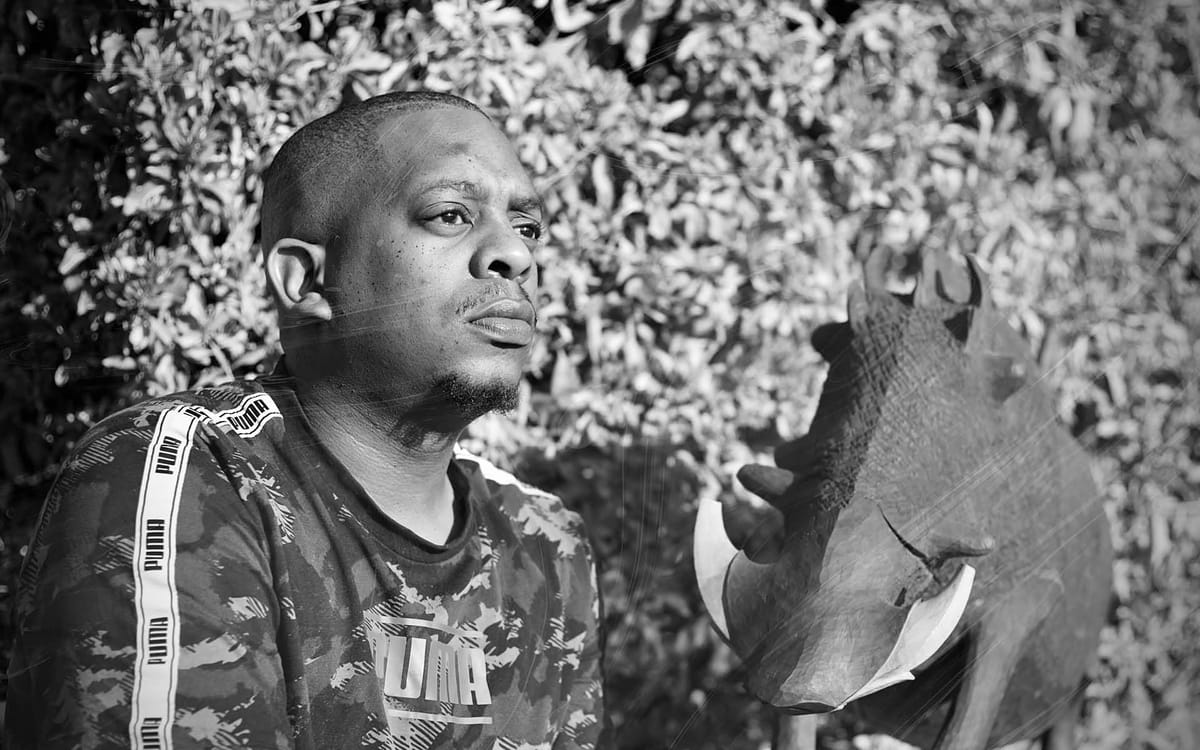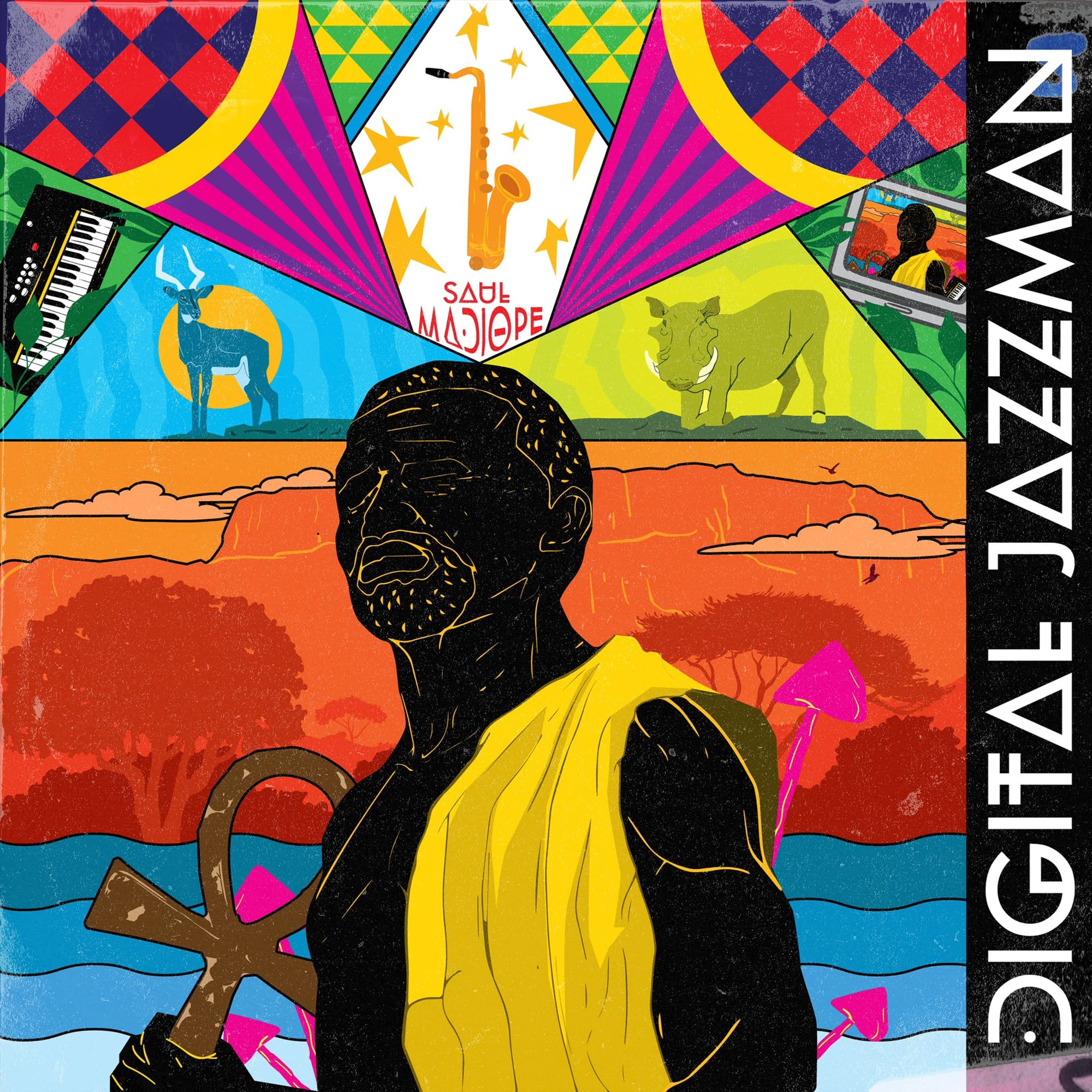Saul Madiope: celebrating African heritage through jazz

Musical language transcends the barrier of time, allowing the past and present to come together. Emerging from the electronic world, the sounds evoke memories of an era when history was passed down by word of mouth. The drums and trumpet in the introduction announce a new beginning, guided by ancestral wisdom: the digital jazzman has returned to share love, forge deep connections, and expand freedom.

Through artistic creation, it is possible to delve into a land of ongoing musical and spiritual evolution. In his latest album, Digital Jazz Man, Saul Madiope introduces stories, voices, and rhythms that transcend borders. "One thing I’ve learned about making music is that I’m not selfish with it. I love collaboration because I've realized the best music comes when you leave the door open to new sounds and perspectives." His voice originates from South Africa, yet his compositions know no boundaries; as he believes, Africa and the other continents share more common ground than many realize.
In 13 songs, Madiope combines themes ranging from self-love to ancestral stories of his heritage: "The first half remained as a lyrical expression and the second half more of an instrumental. Instrumentals are my thing, but at the same time, I'm in love with vocals, so this was the perfect moment to showcase both worlds," he explains. The voices belong to different contexts, eras, and languages. They range from the contemporary African music scene to the influence of his late grandmother—all under a digital worldview that emerges from jazz. "I always gravitate towards powerful and meaningful lyrics, you know—mantras, words you can use to keep you going when you're feeling down. That's the kind of music we need in the world right now."
When listening to this latest production, it becomes clear that behind the figure of the composer, there is a curator of sounds and dialogues, "I'm still a big fan of music because sometimes, as artists, we get too caught up in playing the artistic role," he asserts. True to his philosophy, Saul forged collaborations that elevated the meaning and depth of the songs. Singers like Thandonje, Makhanji, Monifé, Bokang Ramatlapeng, Reba Red, Lizzy Paris, Una Rams, and Jamesia Monroe led the lyric-writing process, each singing about their vision of life. "I always name my beats, so when I make one, I already know the theme I want to explore. With all the songwriters, it was a matter of giving them a topic; some songs were recorded in the studio, so the lyrics were co-written, but for most of the songs, I just gave the artist a theme, and they killed it."
For Saul Madiope, music is a living element through which it is possible to understand the sounds that define his background and identity. "I find expression in my music through knowing who I am. I'm passionate about my culture because I believe everyone should be telling stories about their heritage. My background is rooted in Pretoria, but my roots go deep, reaching back to Limpopo and Botswana." He is aware that through stories, the cultural identity of a people is kept alive, "I believe Africans need to tell stories in their songs. Many people don’t read much anymore because everything is digital, but they watch videos and listen to music. If we can start putting our stories on film, music, and digital platforms, we can ensure they don’t fade away." This album stands as undeniable proof of the power of oral tradition in preserving identity, healing, and social cohesion: "The challenge is that some cultures are diminished or lost in translation. Young people should write and share these stories with the world, keeping those cultures alive for future generations."
Some claim that history belongs to those who tell it; if this is true, then in the case of Digital Jazz Man, it is essential to highlight a central figure in Madiope's life: "This album is dedicated to my late grandmother, who passed away during COVID-19. My relationship with her significantly influenced the creation of this album; she essentially gifted me the heritage of where I’m from, along with the entire family tree and our tribe's history. Listeners can hear her voice in Setswana throughout the album, recounting the story of the Bahananwa tribe."
Her narrative embodies resilience as she recounts how the tribe left their land because of a war they refused to fight, seeking refuge elsewhere. That’s why they were called Bahananwa, which translates to 'the ones who were denied.' She illustrates how, even as outcasts, they became a powerful nation; the Bahananwa's fighting spirit is a testament to resilience in a context where jazz, often diminished outside the Western society, finds new life. "That story resonated with me, especially about my music. Many people don’t fully understand the kind of jazz I’m making, and I sometimes feel like an outlier because of it. I hope this new-age jazz can also reach out and pioneer a new sound for young people to connect with."
In a world with diverse perspectives, jazz serves as both a cultural expression and a form of resistance against marginalization, as Saul mentions, "Jazz was huge, especially during apartheid; jazz helped carry people through those times. Then you have the struggle songs people sang during the hard days, and now they influence my compositions." A genre that goes beyond any defined structure: "My definition of jazz is that you can’t truly define; define is to limit. I say jazz is everything; for me, anything could be jazz. I believe I’m in this space to emphasize that we shouldn’t restrict jazz to Western society. Jazz is so vast. In Africa, we have figures like Fela Kuti, who blended jazz with Afrobeat. Then you have musicians like Hugh Masekela, who also had his unique way of playing. What we realize is that jazz is broader than most realize. Jazz is a mix of many kinds of sounds that come together to create a unique canvas." Ultimately, jazz is a living, breathing entity that reflects the richness of our diverse experiences and histories.
Improvisation is actually what makes the song. I always say it’s good to plan and prepare, but the best music you will ever make is the music you create on the spot—the music that comes to you from elsewhere. That’s the magic of music. This is why I believe in collaboration: as an artist, you can’t have all the magic by yourself, you need to collaborate with others. Sometimes, I’ll be working on a song and hit a wall where I can’t move forward, but when I collaborate with other artists, they often find a path to expression.
Digital Jazz Man by Saul Madiope is a gateway for those looking to explore the vibrant music scene of Africa. In this meeting point, where the past and present coexist in harmony, it's clear that musical evolution is not just possible but vital. History continues to be written through the voices and rhythms, ensuring we do not forget what was while embracing what will be. It is an album to dance, sing, and evolve, inviting all to partake in this multicultural sonic canvas.